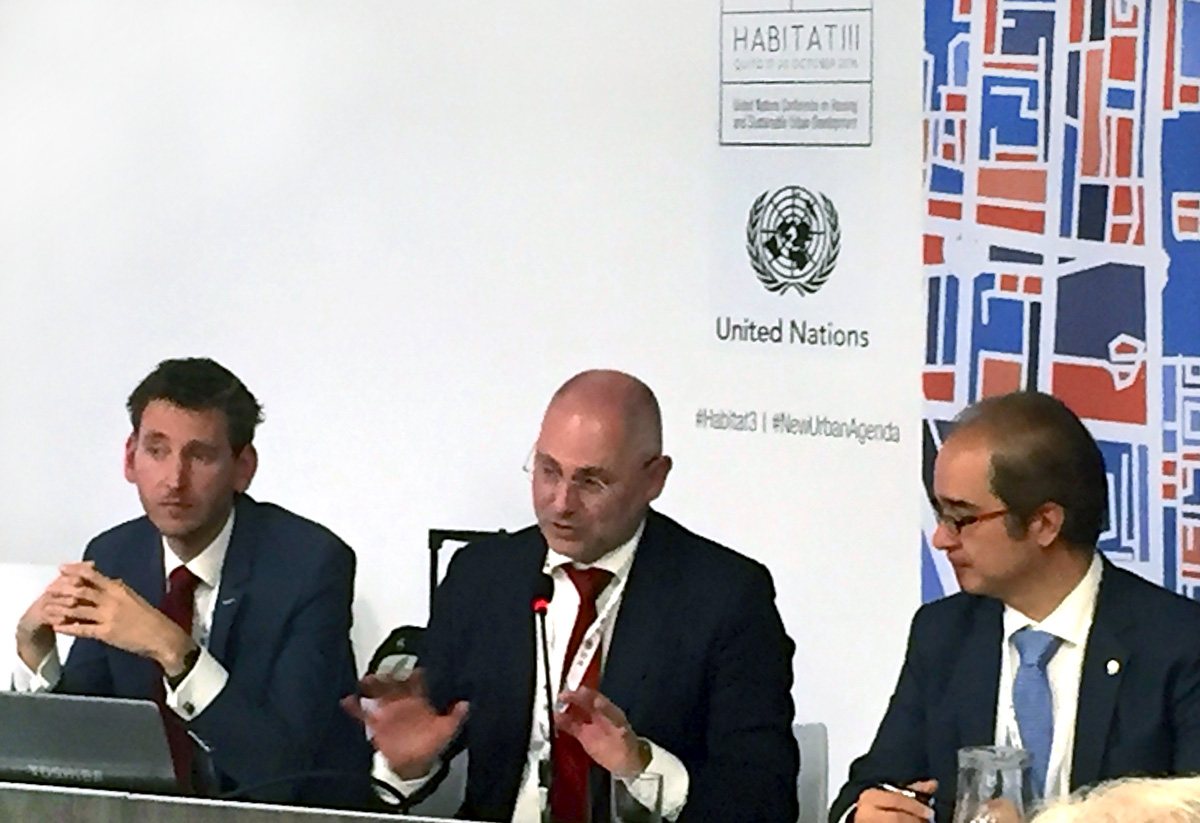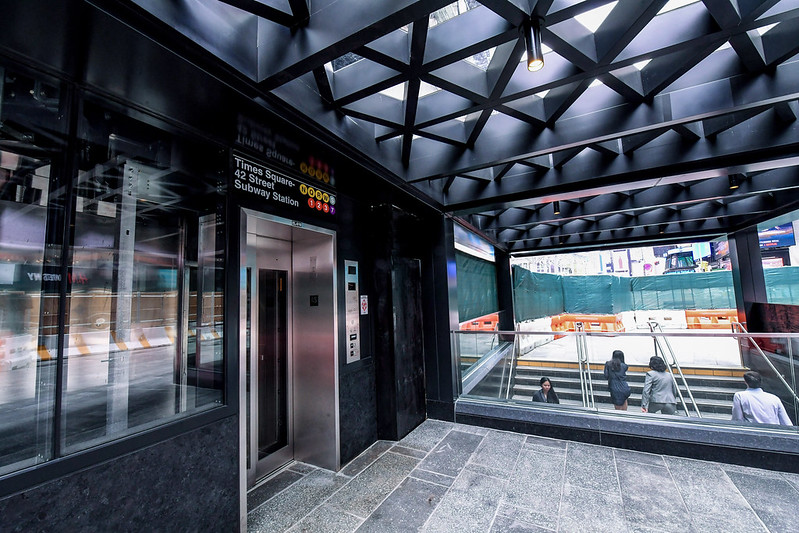
Photo: IMG_0228_web
EU urban agenda can help implement new global agenda, say European cities
18 October 2016
by Richard Forster
The European Union Urban Agenda signed in May this year can provide a useful framework for implementation of the New Urban Agenda according to city representatives speaking at a side meeting on day one of the Habitat III meeting in Quito.
Mart Grisel, Director of the European Urban Knowledge Network, said that there are many linkages between the EU Urban Agenda, which was adopted on 30 May 2016, and the New Urban Agenda set for signature by UN Member States this week. The Pact of Amsterdam, which is the instrument incorporating the EU Urban Agenda, was the result of a long deliberative process involving all major urban stakeholders, both governmental and non-governmental, including civil society, the private sector and knowledge institutions.
“This partnership approach is at the heart of the Urban Agenda for the EU and it is also a key element in the governance model of the New Urban Agenda,” said Grisel.
Speaking on behalf of the Governing Mayor of Berlin and the city association EUROCITIES, which had played a key role in shaping the EU Urban Agenda, Professor Engelbert Lütke Daldrup, Permanent Secretary for Building and Housing at the Senate of Berlin, said the challenge was to make what is written down in the New Urban Agenda come to life and the EU experience could assist in implementation.
The Pact of Amsterdam clearly outlines the relation between the European and the global agendas stating that the Urban Agenda for the EU will contribute to the implementation of the UN 2030 Agenda for Sustainable Development, notably Goal 11 ‘Make cities inclusive, safe, resilient and sustainable’ and the global ‘New Urban Agenda’ as part of the Habitat III process.
“What it is important is to establish a link between Europe and the Rest of the World to be a driving force for good governance,” said Daldrup. “New partnerships between the European Commission and European Member States and their cities can play a key role in the implementation of the New Urban Agenda.”
Comparing the two agendas, Daldrup said that the EU Agenda focuses on the potential of cities to enhance the competitiveness of the European Union whereas the New Urban Agenda from the Habitat III process concentrates on social aspects and people’s way of life.
“I believe these two agendas offer a great opportunity. The exchange of knowledge between cities is essential and I hope Europeans can be inspired to work with other regions of the world,” added Daldrup.










